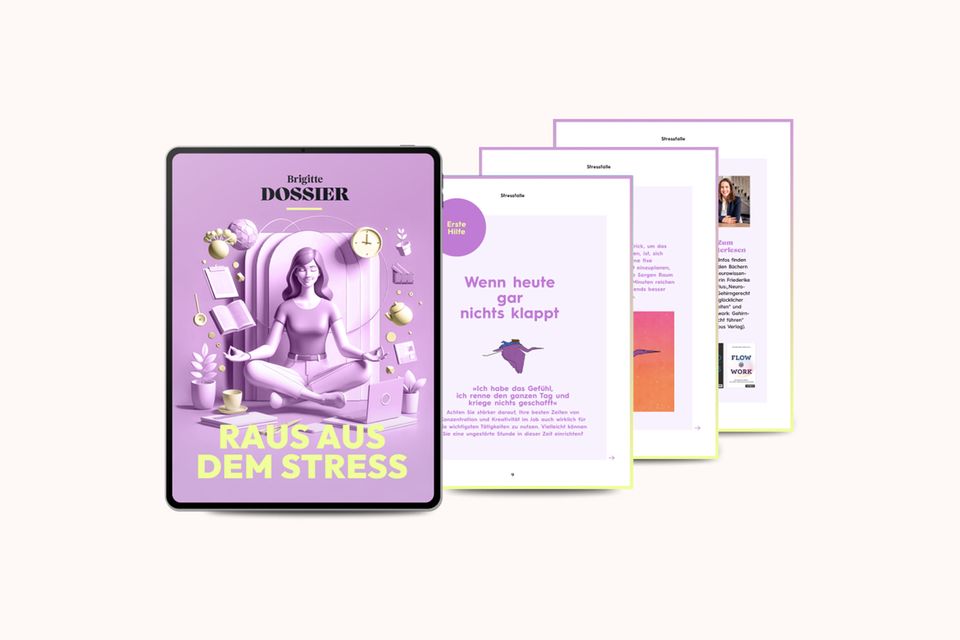Psychology: We better not say that to an anxious person

For people suffering from anxiety, even everyday situations can become stressful. What these people need most of all: wise sayings from their environment. We reveal which phrases you should avoid and what can help instead.
Anxiety, as such, is our brain's natural reaction to dangerous situations. It's designed to put us on alert so we can react quickly. However, when anxiety takes over, as in the case of generalized anxiety disorder, it can cause serious problems for those affected. They feel out of control and tend to ruminate in a paralyzing way. "The problem with anxiety is that it often leads to difficulty thinking rationally and finding solutions," psychologist Dr. Sabrina Romanoff explains to "Insider."
For someone who has never struggled with anxiety themselves, this is often difficult to understand. A great deal of empathy is required here, because supposedly helpful sayings are of absolutely no help to someone who is currently experiencing an anxiety attack or who is generally a rather anxious person.
These 5 sentences you should avoid when dealing with an anxious person 1. "Don't worry so much."It's a bit like telling someone who's broken both legs to just walk a few steps. A person who suffers from anxiety probably wants nothing more than to stop thinking. Unfortunately, they can't control their thoughts or simply turn them off—that's not how the brain works. Telling someone who suffers from rumination to stop will only fuel their anxiety further. It will also make them feel like they're not good enough.
2. "Don't exaggerate, it's not that bad!"We all want to be heard and understood. But this derogatory statement makes the other person feel like they're not being taken seriously. It implies that what they're currently anxious about and worried about—involuntarily, mind you—is unjustified.
In fact, the roots of anxiety disorders often lie much deeper than we can imagine. For example, if someone is afraid of taking the subway, it's rarely actually related to public transportation. Rather, trauma or other underlying causes are often behind it. Therefore, you should never discount fears, no matter how irrational they may seem to a healthy person.

Are you looking for routines that help you unwind? Do you want to finally get a good night's sleep? Learn how to calmly handle stressful periods.
As with most statements, we probably mean well with this one and want to help the person affected. In reality, however, these supposedly comforting words are anything but constructive, because for the person you're talking to, it doesn't feel like anything will ever be okay again. And unfortunately, telling them that doesn't help. On the contrary, it probably only makes the person feel even more that their own emotions aren't valid.
4. "Others are much worse off than you."People with anxiety don't choose their fears, and more importantly, they can't actively control them. Your counterpart is surely aware that there are people who have more serious, perhaps even life-threatening, problems. However, pointing this out to someone is of little help, because the information doesn't simply flip the fear switch in their brain. Instead, the person will likely only feel worse and, in the worst case, trigger another spiral of anxiety.
5. "Look at it positively!"Toxic positivity helps in every situation, but least of all when dealing with an anxious person. People with anxiety have often suffered severe trauma, and the irrational ruminations and anxiety are the brain's attempt to cope. If you tell such a person to be more optimistic, you are invalidating their problems and feelings. Because, in the first place, all emotions are valid—even the negative and irrational ones. Understanding would be much more appropriate here than desperately trying to turn the situation into something positive.
What helps instead: Tips for dealing with anxious peopleDr. Sabrina Romanoff has put together some tips on how you can really help someone with their anxiety – without any clever sayings.
- Be understanding: Listen actively and make it clear that you understand their fears. Be empathetic and, above all, patient.
- Convey a sense of security: Make your counterpart feel that you're there for them and that they're safe. "I'll stay here and stick it out with you. Even if it doesn't feel like it right now, you're safe here."
- Bring yourself back to the here and now: Mindfulness can be a helpful tool for acute anxiety. Ask your partner what exactly they are seeing, smelling, or hearing. You can also breathe consciously together for a few minutes to bring your focus to the present moment.
- Use visualizations: Visualizations can have a similar effect. For example, remind the person of pleasant moments you've experienced together. For example: "Do you remember how beautiful that day at the lake was last summer? The sky was so clear and blue, and we ate such delicious ice cream. What do you remember?"
mbl Brigitte
brigitte


%2520Hotels%2520Griechenland.jpg&w=1280&q=100)

